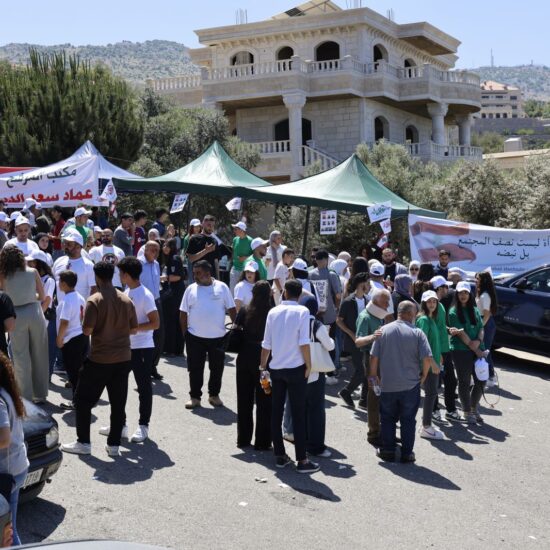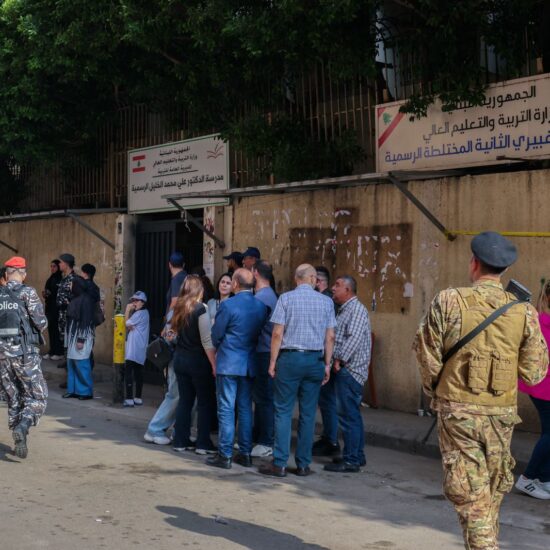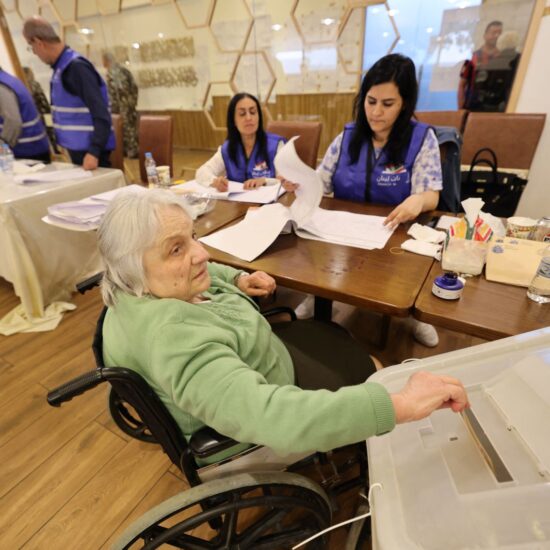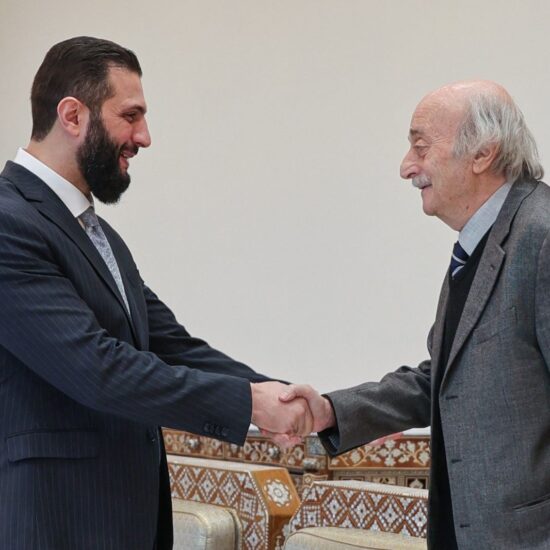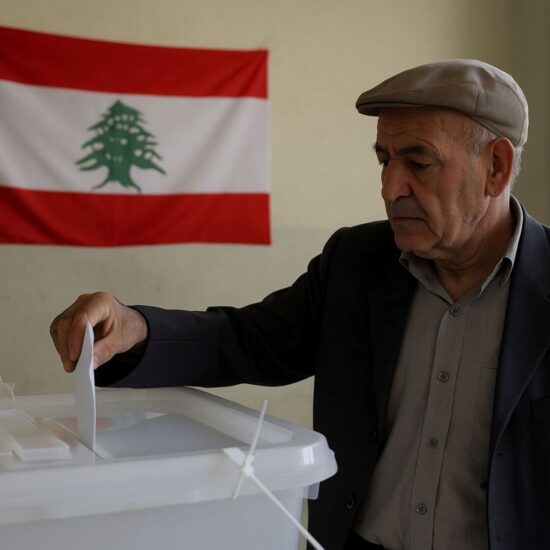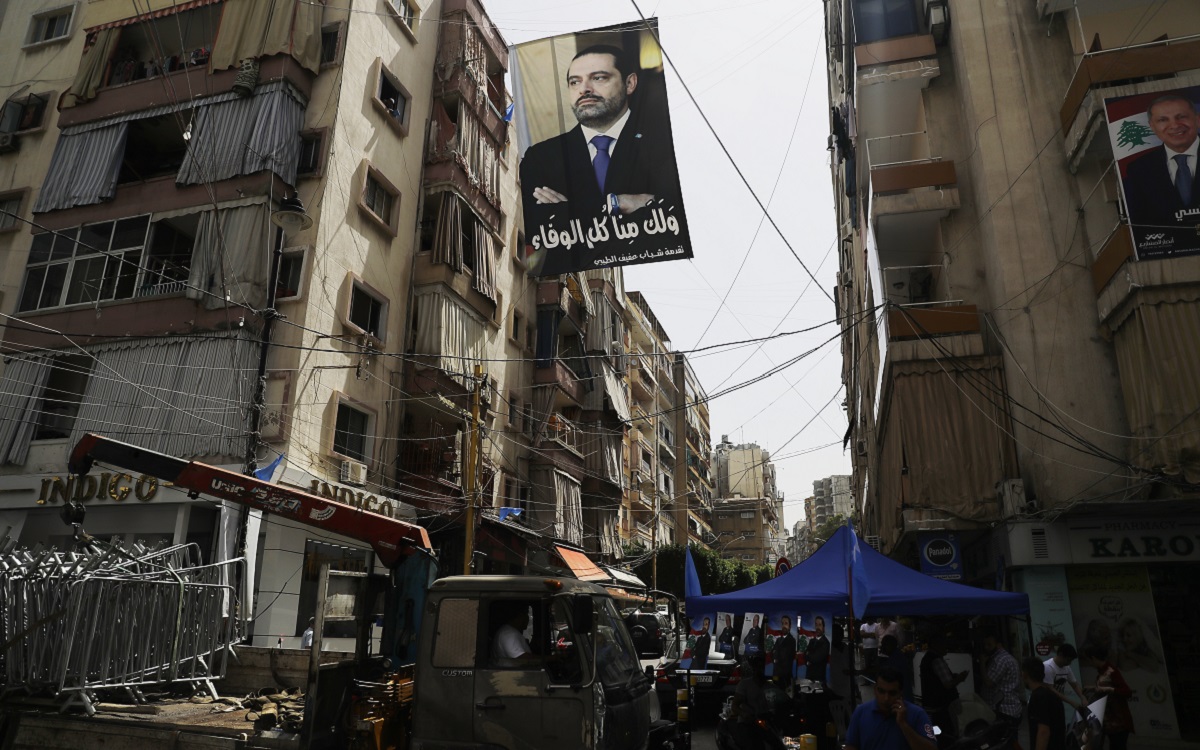
Fierce supporters of Saad Hariri, Wahida Totayou and her husband hail from Saad Nayel in the Bekaa governorate, a Sunni majority area, where they, for the longest time, have been voting for the Future Movement, the country’s prominent representative of the Sunni community.
But this time around, they will be abstaining from casting a vote.
“To be honest, I am glad that Saad Hariri withdrew from political life,” Totayou said. “I was happy for him because he pulled himself out of Lebanon’s political mud pond.”
On January 24, former Lebanese Prime Minister Saad Hariri shattered his supporters when he announced that he is suspending his 17-year political career and would not run in the upcoming parliamentary elections. He called on his political party to follow suit.
The first successor of his father, Rafik Hariri, who was assassinated in 2005, Saad has since been the leader of the Sunni Muslims, one of the nation’s three largest religious sects that make up the fragile sectarian power-sharing structure. The 51-year-old billionaire has served three times as prime minister and failed in his fourth premiership to form a cabinet, clearing the way last July for Najib Mikati, the current head of state.
Totayou has been devoted to the Hariris, as she praises them for their strong foreign relations and for being the only leaders among the ruling elite who did not partake in the 1975-1990 civil war, nor called for armed conflict with other factions throughout their tenure, she claimed.
Analysts say Hariri’s departure leaves a significant political vacuum for the glum Sunni population, whose vote can hardly be swayed toward alternative Sunni groups or the opposition and secular lists. The majority of the sect adherents seem to be in disarray and apathetic toward the crumbling series of events, and a dearth of electoral mobilization in Sunni fiefdoms has been reported.
“We will fight them with our blank ballots”
“The past has proven that no one can replace Saad Hariri but Saad himself,” said Mohammad Ziad Jaafil, a lawyer and Future Movement supporter. “There is no bet on anyone who has similar characteristics on the representative level and international presence.”
Although Totayou admires and respects some Sunni leaders who might be vying for Hariri’s place, she believes they are not politically strong enough nor eligible to fight in the “wrestling ring” and stand against Hariri’s rivals, the Shia duo, Hezbollah and Amal movement, as well as the Free Patriotic Movement.
“The Future Movement leadership has boycotted the elections by not running but no one until now pressed on boycotting the elections by not voting, as for voters, I feel a sense of restlessness about the situation and a complete loss of hope in political change through the current candidates and multiple lists which is causing further fragmentation,” Jaafil said.
Although former Prime Minister Fouad Siniora, a close ally to the Hariri father, resolved not to run in the upcoming local elections, he announced that he will be fully invested in the vote. He has been sponsoring and supporting electoral lists across districts and urging the Sunni community to vote en masse on May 15.
Billionaire business magnate and current member of parliament Fouad Makhzoumi is running again for the 2022 general elections, fixating his efforts on the Beirut II district. He strongly opposes Hezbollah and its influence on Lebanon and the region and criticizes Hariri, whom he ran against in the 2018 elections, for not being aggressive enough in his stance against the Iran-backed Shia group.
Meanwhile, clientelism has always been at the heart of any Lebanese election. Parties tend to garner votes by offering voters services or cash handouts on election day, albeit some voters lean on their sectarian beliefs, ideologies or principles when deciding who to elect.
“Sunni voters are always criticized for not casting enough votes because we are labeled as lazy where we spend our time smoking shisha on election day,” Totayou pointed out. “They also say we don’t vote unless we are bribed but now the Sunni boycott will prove that this is not usually the case – regardless of whether or not we were to be offered money, we won’t be voting.”
The Future Movement prevailed over all lists in the Beirut II district in 2018 when its list, which also comprised Walid Jumblatt’s Progressive Socialist Party, amassed 63,000 votes, or 44 percent of the vote.
They also say we don’t vote unless we are bribed but now the Sunni boycott will prove that this is not usually the case – regardless of whether or not we were to be offered money, we won’t be voting.
The Sunni leadership is feared to be dissolving and soon to be fragmented as many of those who represent the vanguards of the Sunni faction in Lebanon have also decided not to run in legislative elections including PM Najib Mikati, MPs Bahia Hariri, Roula Tabsh, Mohammad Hajjar, Assem Araji, and Tarek Merhebi.
Now that Saad Hariri is out of the political picture, emerging Sunni leaders are on the rise including another Hariri, Saad’s older brother. Bahaa Hariri has been apolitical ever since his father’s assassination, but started getting more involved when the October 17 uprising broke out in 2019 and toppled his brother’s third cabinet.
“What is he doing? Now he shows up instead of supporting his brother in the past?” asked Maher Basha, Hariri supporter and former employee.
“Bahaa needs to sit down with the people he is claiming to represent like his brother used to do and before his brother, his father,” Basha pointed out. “It’s going to take years before people acclimate to him.”
“People have witnessed how Bahaa betrayed his brother whom they love and support, similar to how Saad’s rivals hurt him so how does he expect Sunnis to trust him,” Basha added.
For the last 17 years, the Sunni community knew little about Bahaa Hariri nor the rest of the Hariri family. In the eyes of the Sunni voters, Rafik Hariri’s dynasty fell heavy on Saad’s shoulders alone, along with allies who dwindled and a Saudi blessing that waned over the years.
“Saudi Arabia and the others will discover after the elections that Saad Hariri is not the type of guy they appoint and remove as they wish,” Basha said.
Unlike Totayou, Basha will be casting a blank ballot on election day. “We will fight them with our blank ballots.”
The Sunni political old guard
Basha predicts street fights and clashes erupting in Sunni strongholds like Tarek el-Jdideh as Future Movement and Hariri loyalists would not tolerate new political figures taking the reins, he said, citing the firm Hariri symbolism and intrinsic support in those neighborhoods.
On March 19, members of the politically progressive Beirut Tuqawem (Beirut Resists) were assaulted by Hariri supporters in Tarek el-Jdideh when ambitious members of the youth-led secular group tried to promote their political campaign in the heart of the impoverished Sunni stronghold.
Tents were torn down and campaigners were threatened that more supporters were on the way, so they better pick up and leave.
Both Basha and Totayou do not take opposition and secular groups that emanated from the social movement in 2019 seriously.
“They chanted “Kullun Ya’ane Kullun” but they only targeted Hariri,” Basha claimed. “Once he quit, we didn’t see anyone in the streets.”
Hariri’s resignation after 13 days of nationwide demonstrations in 2019 did not in fact assuage protesters who demanded nothing less than the collapse of the entrenched sectarian system and the entire ruling class. Some analysts also say that the revolution’s efforts were later directed toward mobilizing for the parliamentary elections off the streets.
“Unfortunately there are no real opposition parties even if they raise populist slogans,” Jaafil said. “Especially when those who claim they want political change and promote revolutionary labels lack a clear electoral program.”
Instead of the united front that many voters were counting on, the opposition parties, which call for toppling the current ruling class, emerged with divided multiplex electoral lists with the exception of one constituency, South III.
Experts say this would lower opposition groups’ chances of winning in the face of the solid and fused traditional parties’ lists and votes will be scattered.
“The problem does not lie in voting or how much it is effective as much as the weakness and fragility of the political structure in Lebanon which recycles the same formula even if the faces are different,” Jaafil added.
Sally Abou AlJoud is a multimedia journalist with @NOW_leb. She is on Twitter @JoudSally.



